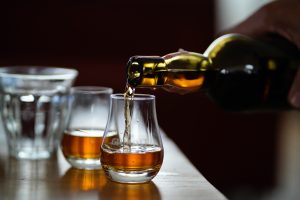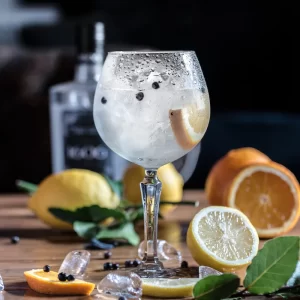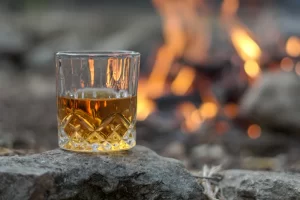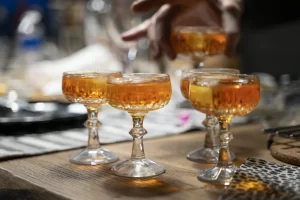Oregon Distillers Guild
Oregon has already made a name for itself as a brewery and winery hub where lots of exciting boozy developments are happening day in and day out.
And as great as this is, it doesn’t half eclipse the comparatively smaller (but just as exciting) craft distilling renaissance playing out within the territorial boundaries of The Beaver State.
However, there is hope of a bright future for Oregon distilleries, as the Oregon Distillers Guild is on the case, doing all it can to, as the guild puts it themselves, “advocate for Oregon”.
We here in Oregon already know how amazing the spirit artisans of this fair state are, how dedicated to and passionate about their craft they are, but the problem we’re left with is that the rest of the world doesn’t know.
In fact, to a certain extent, our neighboring unified states may not know it, and this is precisely what the Oregon Distillers Guild is trying to change!
Oregon Distillery Legislation
Before we explore the wonderful organization that is the ODG, let’s take a look at what they’re up against in the way of current legislation regarding distilleries in Oregon.
State Fees
Unfortunately, Oregon imposes a steep excise tax rate on distilleries. Per gallon, even craft distillers with small operations must contribute $22.75 to the state, which is the second-highest in the nation, behind Washington that charges almost $10 more.
Considering that distillers will also have to pay excise tax to both local and federal agencies as well, it can be a real hurdle for business growth early on.
Thankfully, though, a recent tax cut at the federal level means that distillers are only charged $2.70 per gallon for the first 100 gallons produced.
Licensing Requirements
You can pick up a distiller’s license for $200 in Oregon. Your application must be resubmitted each year, along with an additional $200. For a Special Event Distillery, an Additional $10 per day is required.
Distillers also have to apply for a license to use distillery equipment or a distillation plant.
Restrictions
While it’s legal to own a still in Oregon, it’s illegal to use one to produce any alcohol if the user doesn’t own a license, even if they’re only making the alcohol for themselves, a rule that doesn’t apply to people brewing beer or making wine for personal use.
It’s also illegal to produce any mash, wort, or wash fit intended for use in the distillation process without a license.
Another minor restriction is a cap on tasting locations. As it stands, a distiller can only acquire licenses for tasting sessions at a maximum of 5 different locations.
Who Are The Oregon Distillers Guild?
As it stands, there are currently two head honchos running the Oregon Distillers Guild, both of whom own and run their own distilleries. They are:
- Tom Burkleaux — Runs and owns New Deal Distillery in Portland, an operation that prides itself on locally sourced resources and small batch artisan spirits crafted in accordance with a clear and concise motto… “Make it simple, make it right.”
However, it’s not just ingredients the folks of New Deal Distillery are sourcing from their Portlandian and Oregonian neighbors, but anything they possibly can, including their copper stills.
Community is everything to New Deal Distillery, which is why giving back to the people that prop up their endeavor is such an important aspect of what they do — Charitable donations are basically ingrained in their business plan!
- Brad Irwin — Runs and owns Oregon Spirit Distillers in Bend, a distillery whose primary goal is to utilize local agriculture to develop high quality spirits truly unique to the Oregonian landscape and climate.
Even as it expands beyond the borders of The Beaver State, the main focus of this brand is to bring recognition and prosperity to Oregon, especially where distillation is concerned.
The ever-growing team at Oregon Spirit Distillers is dedicated to continuing the bold, DIY spirit of the land on which they operate, crafting only the finest spirits with the utmost integrity.

Why Tom & Brad?
Oregon isn’t short of amazing distillers pushing boundaries with their operations, but Tom Burkleaux and Brad Irwin have gone above and beyond to champion local people, businesses, charities, and agriculture with their work.
In light of this, there really are no better candidates to take charge at the Oregon Distillers Guild, and being that they both make superb, award-winning artisan spirits, they certainly have the decorations that legitimize their posts.
Where Is The Oregon Distillers Guild Headquartered?
Although Tom and Brad man the helm of the Oregon Distillers Guild, since its formation in 2007, it has evolved into a sizable consortium comprising most of the craft distilleries in the state of Oregon.
Being that it’s such a widespread organization, there doesn’t seem to be any physical headquarters, but there are online spaces that function as a virtual base of operations for the guild and its member distilleries, such as the Oregon Distillery Trail Facebook page.
In fact, as the trail is curated and organized by the guild, their names are by and large synonymous, which is why you may struggle to find much about the guild as a discrete operation, separate from the trail.
What Does The Oregon Distillers Guild Do?
The Oregon Distillers Guild has three agendas, each angled towards facilitating the business growth of Oregonian distilleries, as well as spreading the word about Oregon’s unique and exquisite spirits. These agendas are as follows:
Education — The guild does all it can to educate member distilleries on best practices to ensure a high standard of spirit is maintained, as well as the general public (particularly those who live beyond state lines) about the DIY culture of Oregon and the quality of the spirits crafted.
Legislation — The guild takes it upon themselves to contest or present changes in legislation that will harm Oregonian distillers. For instance, recently, they presented their case against privatization to the state’s governing body, reporting that privatization will lead to …
- Reduced revenue for all Oregonian distillers, and, by extension, stunted business growth and fewer jobs
- A decrease in Oregonian revenue overall, meaning the whole state would be impacted negatively
- Alcohol would be easier accessed by minors, which would lead to all manner of serious issues and incidents
- Damage to OLCC agent stores
- Cut into sales of beer and wine as well as spirits, thus hurting business across the alcohol industry as a whole and decreasing state-wide revenue by an even further degree
The Guild also raises money to take legal action against harmful taxes and legislation when their proposals either go unheard or are denied.
Promotion — And last but not least, the Oregon Distillers Guild works tirelessly with whatever funds they can gather to promote the craft distillery scene both within and beyond state and national lines.
The ultimate goal is to establish Oregon as not just a national leader in the distillation industry, but to establish the state’s voice on the world stage as well, thereby generating more tourism and internationally-derived revenue.
Final Thoughts
As a comparatively small state with a modestly-sized population, Oregon isn’t home to anywhere near as many distilleries as, say, California or Texas, but on a per capita basis, The Beaver State outdoes both of these giant states and then some.
Despite the DIY spirit and scale of Distilleries across the state, they’ve become a pivotal player in the economy, bolstering revenue by millions of dollars, and the Oregon Distillers Guild has played a large role in getting them there.
Antithetical to the typical corporate structure, this organization exists to prop up what would usually be considered competitors, for the betterment of everyone, from the distillers themselves, to the drinkers of their spirits.









